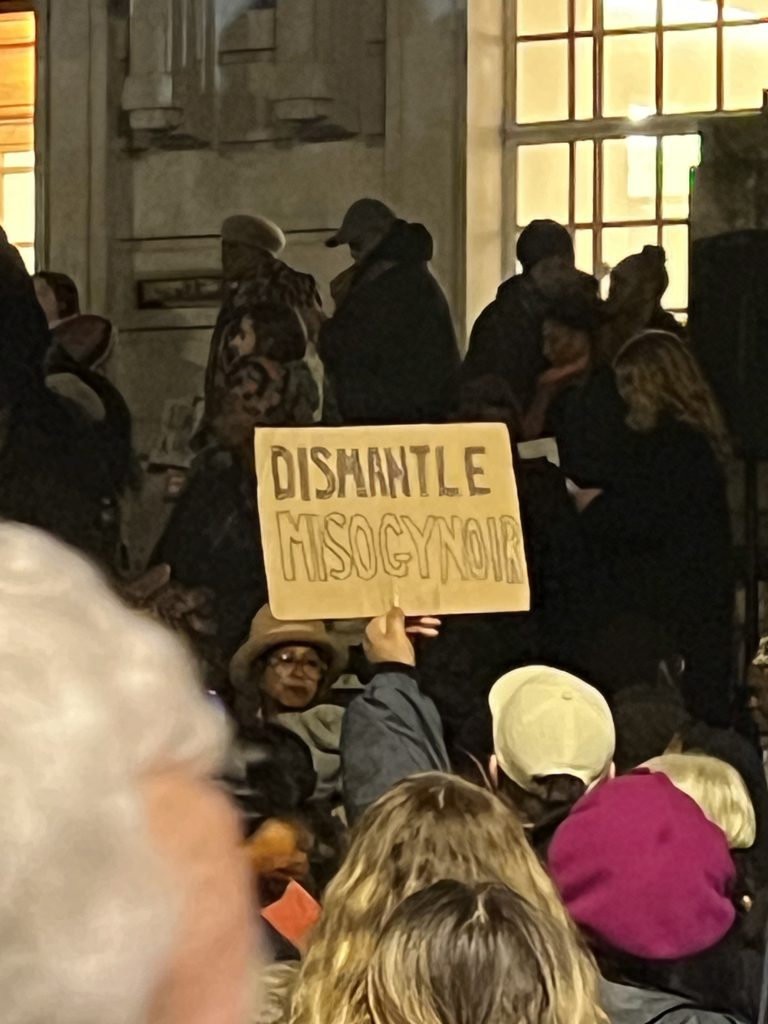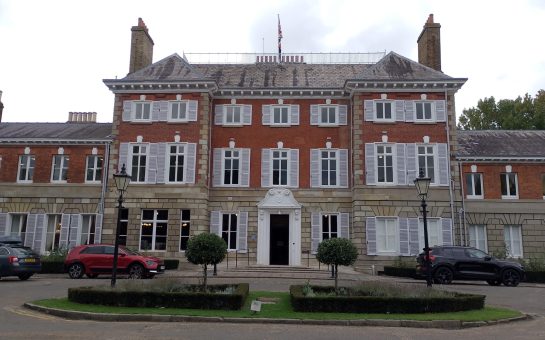The misogynoir targeting Diane Abbott highlights the discrimination that Black women in the UK continue to face across all areas of society.
On 14 March, wealthy businessman Frank Hester made a £150,000 donation to the Conservative Party.
Three days earlier, the Guardian revealed that he said Diane Abbott, Britain’s longest-serving Black MP, made him “want to hate all Black women” and that she “should be shot”.
At a rally held in solidarity with Abbott on 15 March, former Labour Leader Jeremy Corbyn told SWLondoner: “Diane’s work in Parliament ever since becoming the first Black woman MP in 1987 has been about education, empowerment and liberation.
“The racist and sexist abuse and death threats she has received during her career are completely unacceptable.
“This is communities coming together and saying we are not having this, we are not putting up with this.
“If they attack her, they’re attacking all of us.”
But the Conservative Party’s response to Hester’s comments was tepid.
Senior Tory politicians first denied the remarks were racist, before changing their line to plead for “Christian forgiveness” on his behalf.
It was only after more than 24 hours of dithering that then-Prime Minister Rishi Sunak finally caved to pressure and issued a statement calling the comments “racist and wrong” – but decided against relinquishing the sizeable cash injection the donor had made to the party’s coffers.
Unfortunately, Hester’s remarks – and the attempt to minimise their severity and accept his donations – reveal a problem that is all too common: misogynoir.
This term, coined by African-American feminist scholar Dr. Moya Bailey, refers to the distinct experience of racism and misogyny that Black women face as they occupy a unique position vulnerable to both race-based and gender-based oppression.
Throughout her 36-year career, Abbott has been subjected to relentless racist and sexist attacks, with an Amnesty International study revealing she received 10 times more abuse than any other MP in the leadup to the 2017 General Election.
In 2022, the Forde Report – an independent investigation into allegations of racism, sexism and bullying in the Labour Party – found criticisms of her used expressions of visceral disgust, drawing on racist tropes which bore little resemblance to the criticisms of white male MPs.

Corbyn’s words at the rally echoed the sentiments of Vanessa Lecointe, 61, who said: “I’m a mixed race woman and I’ve endured the same mixture of racism and misogyny Diane is facing from the 1960s till now – it never stopped.
“I’ve been going to these marches since I was 17, I can’t believe we’re still here marching.
“Enough is enough now.”
Yet Abbott’s treatment is not an isolated incident. Rather, it extends far beyond the political landscape.
From education to employment, housing to healthcare, racism and misogyny permeate the lived experiences of Black women in the UK.
Kulvinder Nagre, Research and Policy Coordinator at Race on The Agenda explained: “The intersections of racism with misogyny and other gendered issues have resulted in especially pervasive forms of discrimination against black women across British society.”
This reality emerges from recent data highlighting the alarming racial disparities in maternal care.
An annual study by maternal health network MBRRACE-UK found that black women in the UK are almost four times more likely to die during or in the first year after pregnancy than white women.
Investigating these disparities, pregnancy rights group, Birthrights, found that racist attitudes and behaviours by caregivers such as racial stereotyping and microaggressions had a serious detrimental effect on maternity experiences.
In the workplace, the Trade Union Congress reported that more than one in three Black and minority ethnic women have experienced racist jokes and so-called banter and 30% have experienced verbal abuse.
“Being a Black woman in the workplace is mentally exhausting,” said Sarah*, 27, an analyst at an investment bank in London.
“I feel like I’m expected to represent my entire race in every interaction, while my white colleagues are seen as individuals.
“We have to mask so much and accept microaggressions as ‘jokes’ because we do not have the luxury of experiencing any emotion that isn’t positive or you will be seen as aggressive.
“For example, I have anxiety and I’ve been told on numerous occasions that my nervousness comes across as being stand-offish or having an attitude problem.
“I wonder if this is how a genuine mental health condition would be perceived if I were white.
“It’s also difficult having to constantly second-guess myself, wondering if negative feedback is due to my performance or my identity as a Black woman.
“And I hear so many stories that mirror my own so this is just how it is, it’s so traumatising.”
These entrenched issues do not just impact women but also fail young Black girls.
In 2020, Child Q, a Black 15-year-old schoolgirl, was stripped-searched by police after teachers wrongly accused her of possessing cannabis.
She was made to expose intimate body parts whilst menstruating with no appropriate adult present.
No drugs were subsequently found.
Nagre added: “In schools, Black and minoritised girls face a disproportionate level of exclusions, which goes hand-in-hand with the well-documented racial discipline gap.
“The racial disparity in instances of police conducting strip-searches forms a particularly horrific part of a wider pattern of adultification and criminalisation, whereby Black children in particular are not treated as young, vulnerable people requiring our support, but as adult lawbreakers.”
So while such scandals may be shocking, they are not surprising.
Confronting this intersection of racism and misogyny requires a multidimensional approach with policy reforms, cultural shifts, and community empowerment all serving as essential components.
Only then can the UK begin to address the dual burden of racism and misogyny that Black women have endured for far too long.
For Nagre, any solution begins with the unequivocal recognition that racism exists: “It starts with all of society acknowledging the structural nature of this issue and institutions committing to being anti-racist, actively working to eliminate racism from their systems and processes.
“Additionally, any action must centre the perspectives and lived experiences of those who have suffered from racism and misogyny, and must therefore serve to amplify the voices of minoritised individuals, whilst empowering them to dismantle these barriers.”
* Name has been changed to preserve anonymity
Featured image: Christina @ wocintechchat.com on Unsplash





